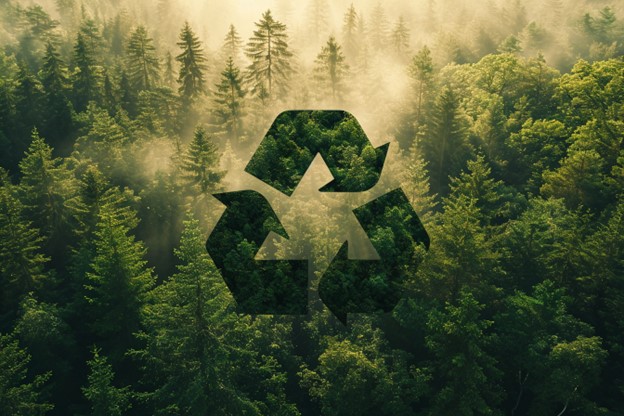In the rapidly evolving business landscape, sustainability has become a cornerstone for companies across all sectors, especially those involved in packaging and labeling. This piece explores the critical areas of sustainability regulations and global initiatives, shedding light on their impact and the opportunities they present.
Government Regulations Driving Change
EU PPWR & Green Deal: The EU’s Packaging and Packaging Waste Regulation, alongside the Green Deal’s focus on sustainability, mandates significant shifts towards the use of sustainable materials and transparent environmental claims in packaging. These regulations are reshaping how companies approach packaging and labeling, emphasizing the need for innovation and compliance with environmental standards. The broad implications of such regulations suggest a future where sustainability is not just a choice but a mandated aspect of business operations. Discussions around expanding these regulations to include stricter recycling quotas and reduced plastic use indicate a trajectory towards even more rigorous standards, making it crucial for companies to stay abreast of developments and begin taking action now to meet the goals of these regulations.
EPR Regulations in the US and UK: With the UK’s Plastic Packaging Tax incentivizing the use of recycled materials and the US’s Extended Producer Responsibility (EPR) laws like California’s SB 54 focusing on waste management, companies are compelled to rethink their packaging strategies. These policies underscore the importance of sustainability in packaging choices and the broader implications for environmental stewardship. The evolving nature of these regulations, including potential expansions in tax scope and the introduction of similar EPR frameworks in other regions, highlights the need for businesses to remain flexible and forward-thinking in their packaging solutions.


Global Sustainable Treaties and Coalitions
Ellen MacArthur Foundation & UN SDGs: The Ellen MacArthur Foundation’s advocacy for a circular economy and the UN Sustainable Development Goals provide frameworks for sustainable practices. These global initiatives encourage companies to adopt practices that support sustainable consumption and production, driving innovation in how products are packaged and labeled. As these frameworks evolve and new targets are set, companies will need to be nimble, leveraging the latest technological advancements and material innovations to stay aligned with global sustainability objectives.
Stay ahead with real-time updates on the latest news:
Sustainable Packaging Coalition & Plastic Pact: Guidelines from these coalitions emphasize the need for sustainable packaging solutions that align with global sustainability goals. Companies are encouraged to explore new materials and designs that reduce environmental impact, demonstrating leadership in sustainability. With ongoing discussions about enhancing material recyclability and reducing carbon footprints, the landscape of sustainable packaging is set to undergo continued transformation, requiring companies to be proactive in their engagement with industry coalitions and initiatives.

The Impact of Corporate Sustainability Pledges
Large global CPGs, such as Coca-Cola and Procter & Gamble, have made significant sustainability pledges, influencing standards and expectations across the industry. These commitments highlight the importance of sustainable practices in packaging and labeling, inspiring companies to innovate and adopt more sustainable approaches to meet these evolving standards. As more corporations make similar pledges, the collective push towards sustainability will likely spur further regulatory developments and industry-wide shifts, underscoring the importance of being ahead in adopting and integrating sustainable practices.
The shift towards sustainability in packaging and labeling is driven by a complex interplay of regulations, global initiatives, and corporate commitments. For companies, navigating this landscape offers an opportunity to lead in sustainability, turning challenges into competitive advantages. By embracing these changes, businesses can contribute to a more sustainable future, meeting the demands of both regulators and consumers for greater environmental responsibility. Videojet is focused on staying on top of this rapidly changing regulatory environment and supporting our customers as they work to comply. The anticipation of future regulatory and policy changes, along with the broader implications for global environmental and economic systems, makes it imperative for companies to stay informed, flexible, and ready to implement innovative packaging solutions.
